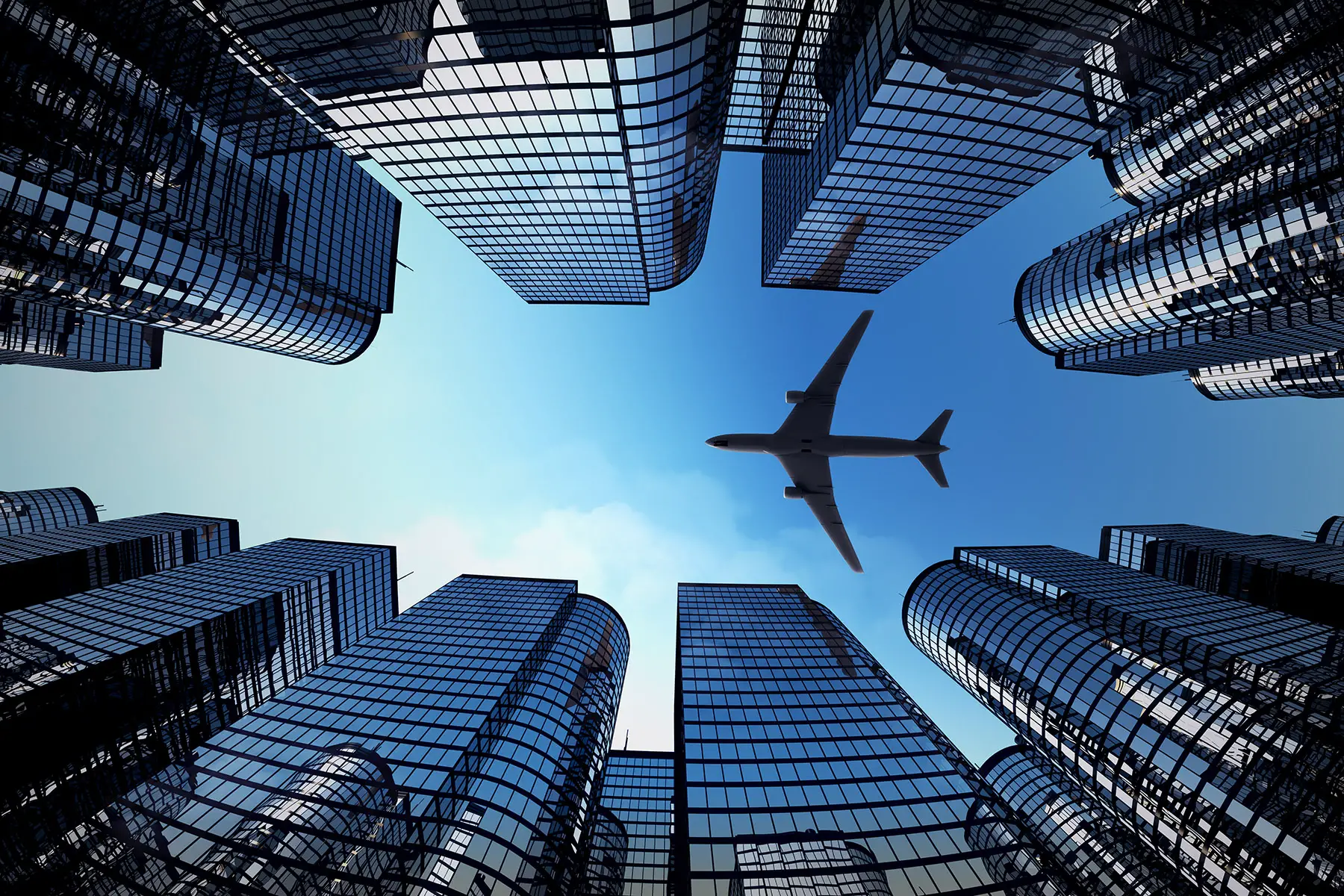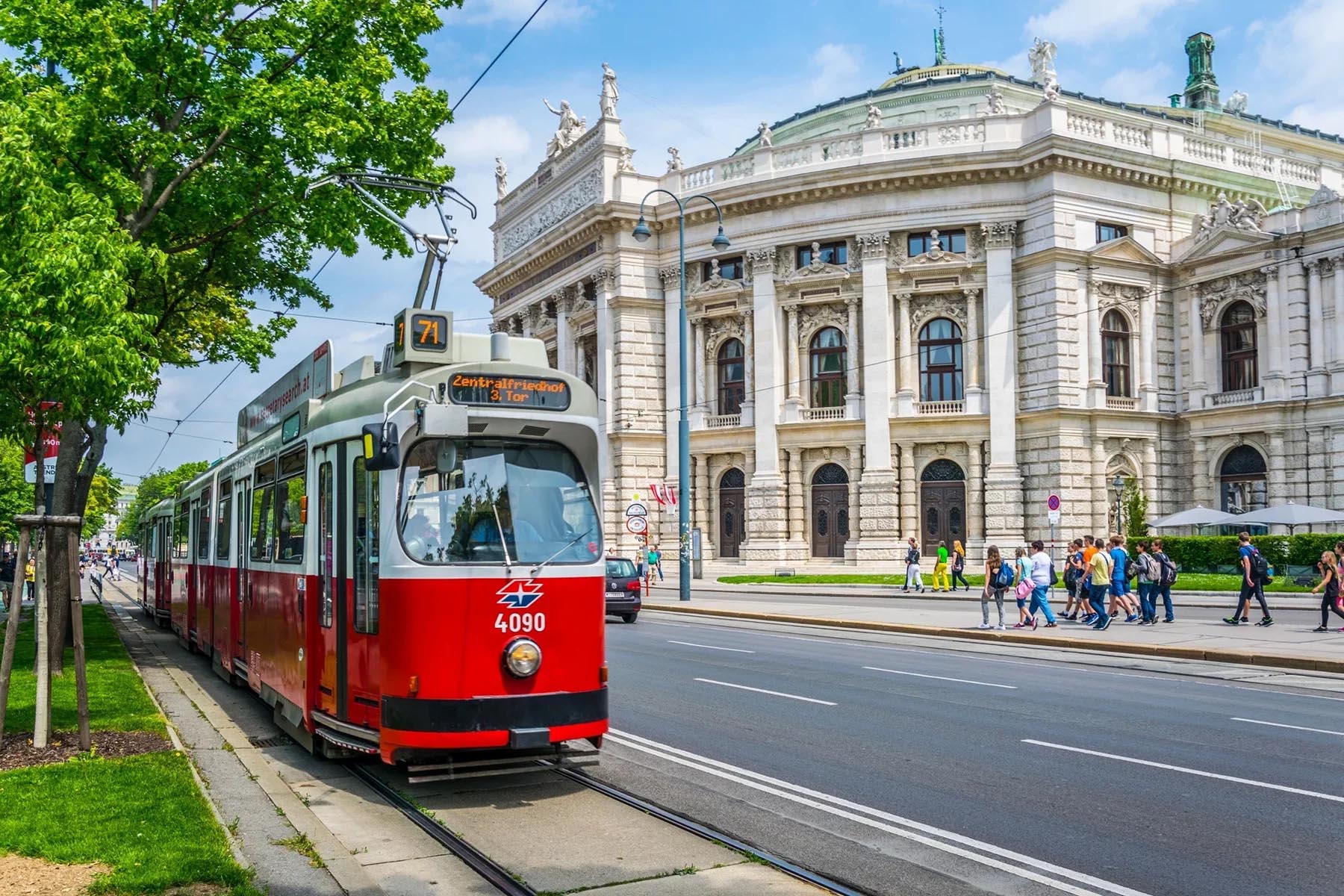When moving to a new country, it’s always a good idea to make a solid plan of what you will need to accomplish within your first week in Austria. That way, you won’t feel so overwhelmed when you reach your new home and begin settling into expat life. And if you happen to be moving to the beautiful alpine nation of Austria, this handy checklist outlines everything you need to arrange within your first week in the country, including the following:
- Register as a resident in Austria
- Open an Austrian bank account
- Register for healthcare
- Set up your utilities and telecommunications
- Arrange your insurance
- Sort out your transportation
- Familiarize yourself with local shops and amenities
- Familiarize yourself with the people and culture
- Learn German
- Make the necessary arrangements for childcare and schooling
- Additional considerations – accommodation, jobs, studying
- Finally… keep a list of emergency numbers safe
- Useful resources
Airbnb
Looking for a home away from home in Austria? Airbnb is a global online community offering accommodation and experiences. They have a selection of over 6 million unique properties available through their secure booking service. So, whether you're moving to Vienna, Innsbruck, or elsewhere, Airbnb has the right short-term let for you.
Register as a resident in Austria
If you are establishing residence in Austria, you will need to register your arrival in the country within your first week; this is regardless of whether you’re renting or securing a mortgage for a house of your own. You can do this at the local Meldebehörde (registration authority) for yourself and all minors living in the same household. You can also read our guide to visas and immigration in Austria for further information.
Generally, employees are subject to compulsory social security in Austria. Usually, employers will automatically register employees for social security insurance when they are hired. The strong social insurance system means that taxes are high in Austria, and you can expect to pay 20% VAT on goods that you purchase and up to 55% on your yearly taxable income.
If you are employed, a monthly contribution to social insurance (18.12% in 2020) will come out of every paycheck. Additionally, your employer will pay a similar sum on your behalf, and 1.53% of your paycheck will go into a pension fund.
Open an Austrian bank account
Definitely, top of the list during your first week in Austria, will be opening a bank account. With the wonders of digital and mobile banking, you may even be able to set this up before you arrive in the country. In fact, most of the banks in Austria offer mobile banking to their customers.
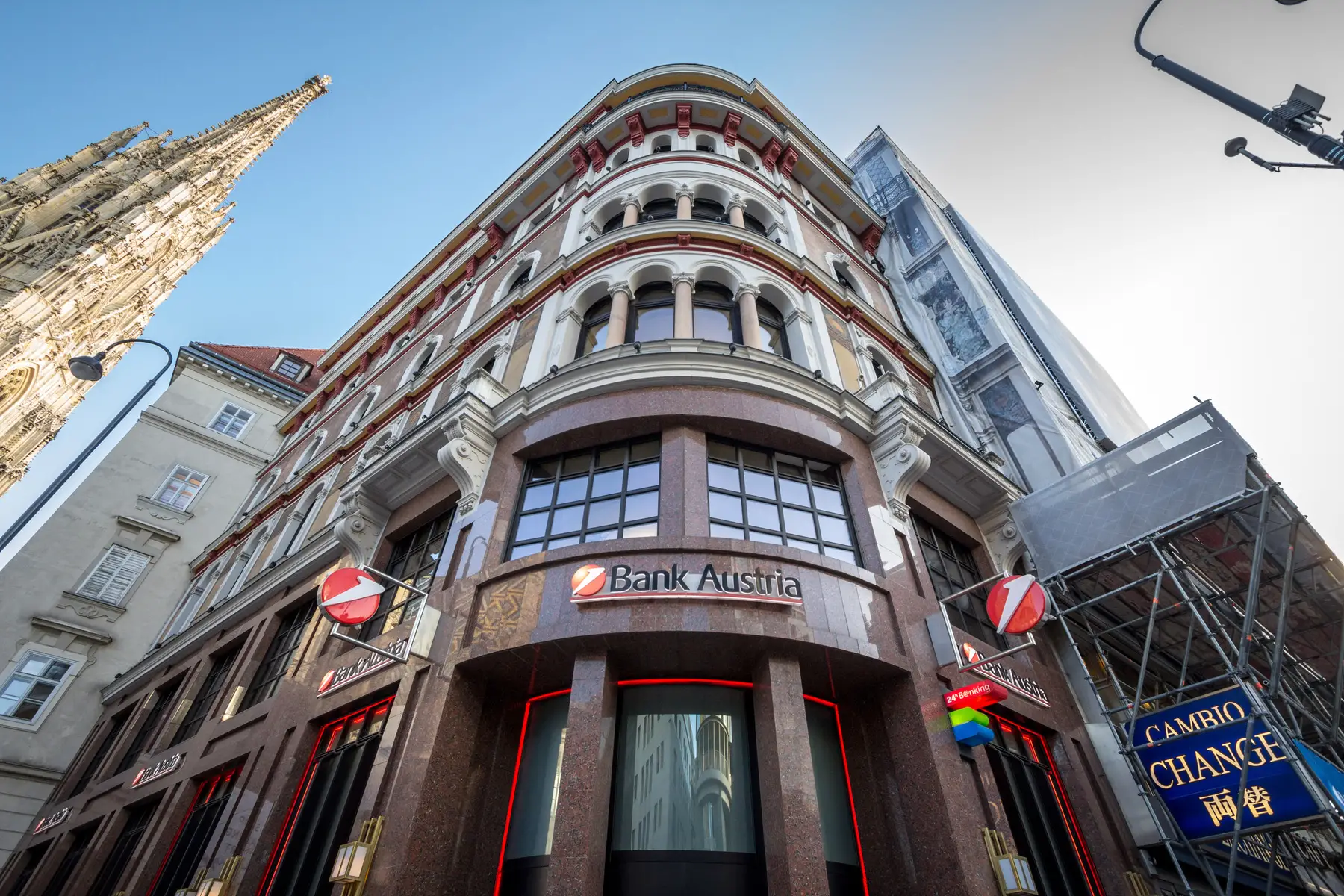
If you go down this route, you will need to verify your identity by providing a PostIdent. Currently, there are four ways to verify your identity, as follows:
- eID – for this option, your personal information and ID card is sent over the internet
- Photograph – you provide a photograph and record a video clip of your face to verify your identity
- Video chat – you input personal data and use your webcam to call a Video-Ident call center agent. They will take your picture and verify your identity.
- Post office – you can visit a post office in person, with your personalized PostIdent generated by the PostIdent portal
In Austria, you can also have your salary, mortgage, loans, and insurance paid out of, or into, another bank in the European Union. However, if you plan to stay for any length of time, it would be easiest to get yourself an Austrian account as well. Firstly, to open a bank account in Austria, you need to have the following documents at hand:
- your proof of identity (for example, your passport)
- proof of residency (such as a Residency Registration Form or utility bills)
- your proof of employment (such as an official job contract)
A few of the most popular international banks available in Austria are Deutsche Bank, CitiBank, and Western Union Bank. Typically, Euros are the only accepted form of cash payment in Austria. Conversely, most international credit and debit cards are accepted at every major retailer. Additionally, foreign money and Euros can be brought in without any restrictions.
Register for healthcare
In Austria, healthcare is primarily public, with the option to obtain private health insurance. Healthcare is universal, meaning that everyone within Austria can access it. This includes tourists, however, this comes at a price.

Luckily, registering for healthcare in Austria is incredibly easy. Firstly, after you start your job, your employer is responsible for enrolling you in public health insurance (along with your spouse and any dependants). Then, your monthly payments will be automatically deducted.
After you register, your health insurance company will mail you an E-Card that keeps track of your medical history. Essentially, this is your health insurance card. You can choose your own doctor to visit based on where you live or word of mouth. You only need to take your E-Card and photo ID along with you to any medical appointments.
If you wish to take out private health insurance, there are several providers in Austria, all of which are regulated by the Financial Market Authority. The leading groups are Allianz Care and Cigna Global. Both offer a range of plans to suit all people and situations. Generally, the older you are the more you will pay. For example, a plan for children below 18 could cost around €30 per month. However, the same plan for someone above 65 may cost as much as €450 to €500 per month. Additional factors include both gender and pre-existing conditions. You can read more about this in our guide to getting health insurance in Austria.
Set up your utilities and telecommunications
Usually, when you move into a new apartment or house, your landlord should give you the details of which utility providers service your home. However, in Austria, there are also several competing providers. Therefore, you may choose to go with a cheaper option. You can check out Stromliste to help you decide on the most affordable provider.
After you have chosen, you will need to provide them with information about your apartment and its heating and water systems. Then, you can open an account. Gas services also work the same way. Ideally, you should do this as soon as possible as it can take time to get set up; think weeks rather than days.

Again, the process for setting up your phone, internet, and television is easy to do. Typically, you can keep your same phone and simply change the SIM card when you arrive. Many expats start with a pay-as-you-go SIM card until they get a feel for what they need and switch to a contract.
Arrange your insurance
Along with health insurance, you will probably want to sort your home insurance out. If you are renting, your landlord may request you take out contents insurance. As for car insurance, the Association of Insurance Companies in Austria (VVO) regulates this in Austria. If you wish to own a car, you will need to buy Haftpflichtversicherung (third-party liability) insurance first. This covers damage caused to others in an accident. For more information, read our guides to getting car insurance and insurance in Austria.
Sort out your transportation
During your first week in Austria, you are going to want to get around and explore your new home. If you are going to get a car of your own, you will find the rules very similar to the rest of Europe. If you are from a non-EU country, you will likely be able to drive using your own license for six months. After that, you will need to get an Austrian license. If you are looking to buy or hire a car, you can search our directory for providers.
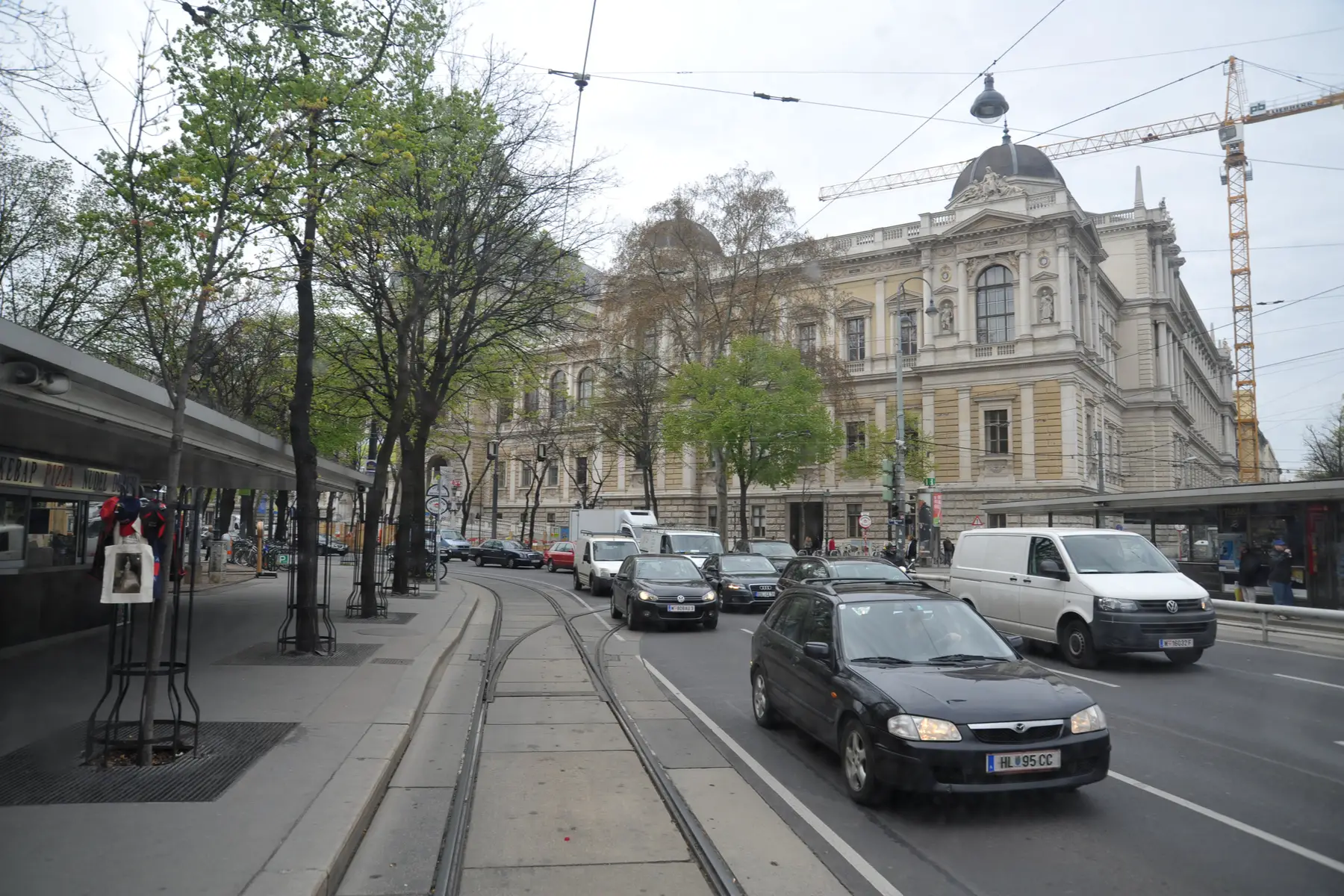
If you are looking to import your own car, it is possible, although a tad arduous. For example, you will need to undertake a technical inspection, have all your papers in order, and pay several fees.
If you need to exchange your driving license, this is generally quite simple. You will need to take in your passport, foreign driving license, a 35mm x 45mm photo, and a translation if your license is not in German. A translation service such as lingoking can provide you with this. You may also need to pass a test, depending on where your license was issued.
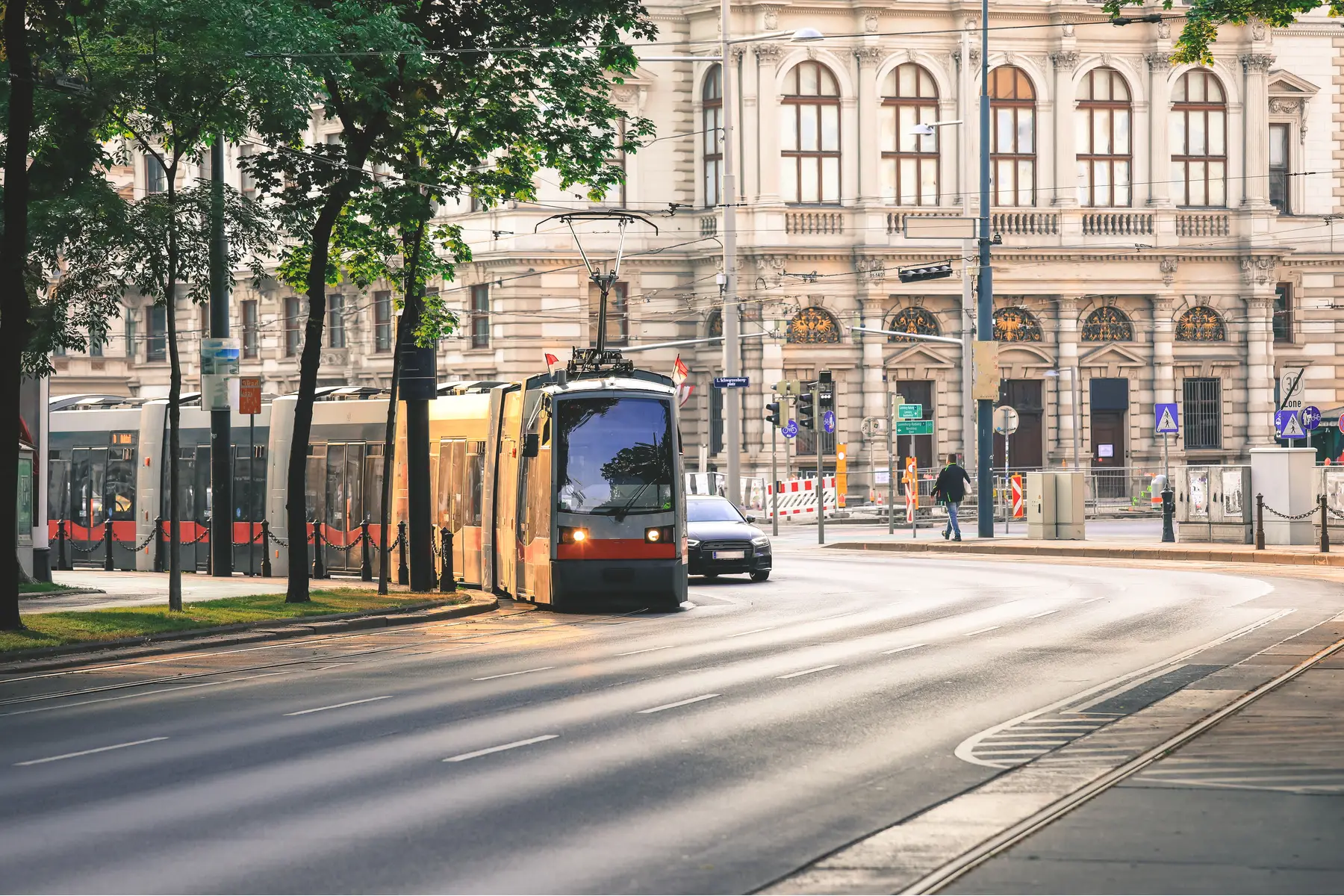
Luckily, public transport in Austria is efficient and inexpensive. The cities are particularly reliable and offer clean transport throughout. The entire country is also quite well connected. In Vienna, apps like WienMobil will help you find your way. You can find more handy apps in our guide.
Familiarize yourself with local shops and amenities
Of course, as soon as you move to Austria, you will want to get familiar with all your local supermarkets and shops so that you can stock up with everything you need. Austrian products may be different from what you are used to but give them a try, and you may just be delighted with what you discover. That said, if you are missing a taste of home, you can search for international grocery stores in our directory.

If you aren’t ready to venture out, however, there are delivery options available. These include food boxes from local producers and meal-kit recipe boxes from companies such as HelloFresh. If you are looking for a quick meal from a delivery platform, you can try Lieferando.at or Foodora.
Speaking of delivery, all the major European online stores are available in Austria, so you will have no trouble getting your favorite fashion or homeware fix. However, if you are looking to support local stores, there is a great online resource in Vienna for online shopping specifically. And if you have some mail to send through Austrian Post, their website is very comprehensive and can tell you where your local post office is located.
Additionally, the travel portal Austria Arrive and Revive provides a great calendar of ongoing events around the country which includes everything from museum exhibitions to music concerts and festivals. The government’s Vienna Now Forever site also offers a huge amount of information on everything from bars and restaurants to cinemas and shows.
Familiarize yourself with the people and culture
One of the best ways to get to know the people and culture of Austria is through the nation’s food. From the famed Wiener Schnitzel and Wiener Würstchen to the lesser-known Käsespätzle and Tiroler Gröstl, there is plenty to satisfy all taste buds. Finish up with a Viennese Apfelstrudel and you’ll practically be Austrian already.
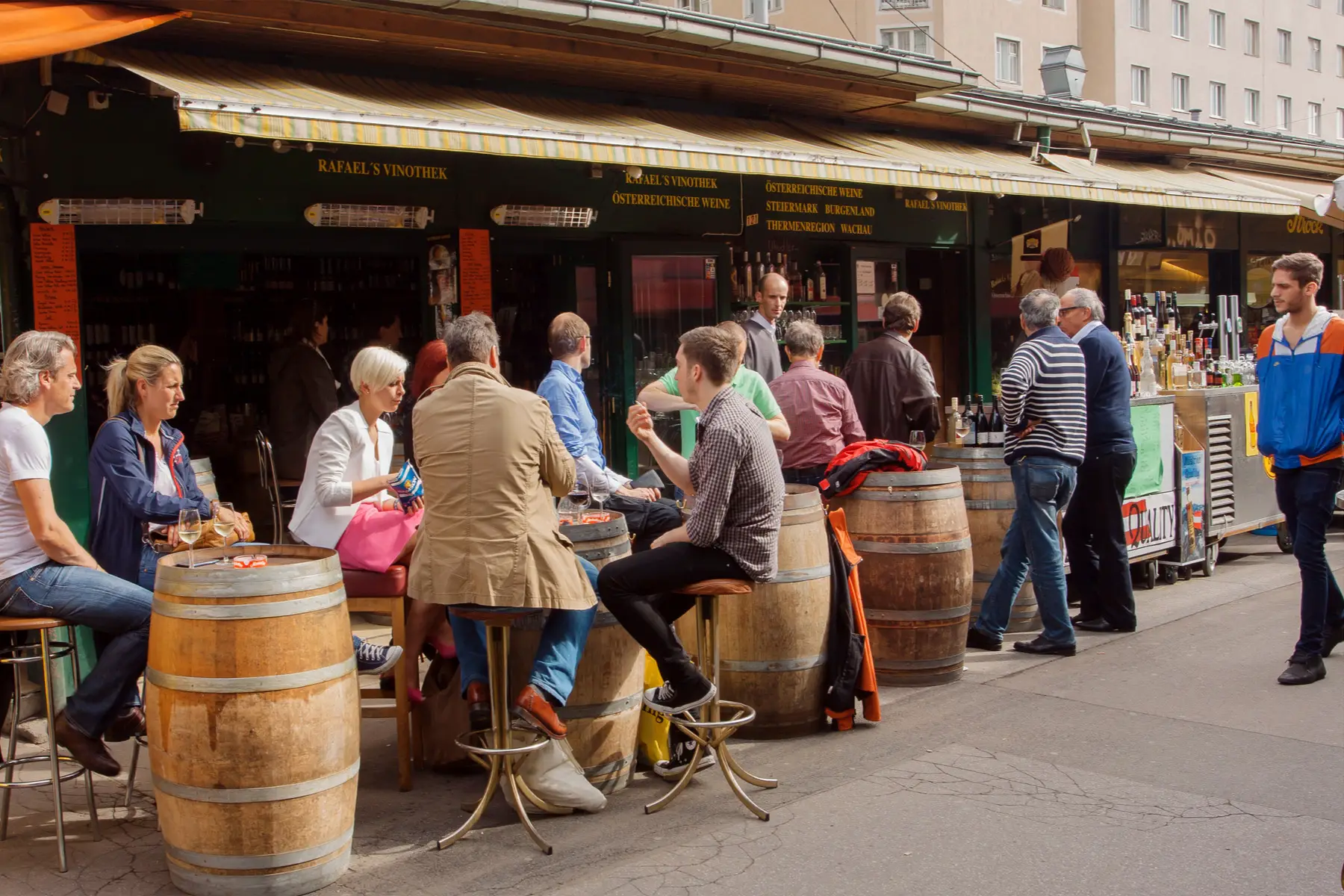
But seriously, learning the customs through restaurants, bars, and cafés is an easy way to familiarize yourself with local customs. Austrians are also known for their passion for great food. Plus, let’s face it, it’s a delicious way to go about learning anything!
The official language of Austria is German and around 98% of the country’s population speaks it. Austrians tend to share a complex sense of humor that may take some getting used to at first. Punctuality and reliability are two traits that are prized in the country, too. If you share them, you will easily slip into the Austrian way of life. Read more about Austrian people.
Learn German
Although German is the most widely spoken language of Austria, English is the common denominator of the expat community. However, if you are planning to stay long-term, learning German is definitely going to be a benefit.
Fortunately, there are a host of apps and online portals to learn German. Alternatively, there are plenty of private classes you can enroll in if you learn best in that environment. Likely, if you have children, they will be picking it up quickly already.

Learning the local language will help you overcome any culture shock that you might encounter. You will also find it much easier to integrate into the community by speaking the common language. You can get a head start with some common Austrian phrases and before you know it, you’ll be speaking like a native in no time.
Make the necessary arrangements for childcare and schooling
Initially, you may find the Austrian education system a little overwhelming. But just take a breath and read through each requirement one at a time. Austria has compulsory schooling for children aged six to 15, and there are a plethora of schools to choose from. You will also need to decide between free state schools and private international schools.
If your children are under the age of six, you will need to look into the different state-run nurseries, daycares, and crechés. There are plenty of private babysitters and au pairs you can look into hiring, too. You can just gather all the information you need and make your decisions as you go. Hopefully, it won’t feel too overwhelming once you have all the pieces of the puzzle.
Additional considerations – accommodation, jobs, studying
If you haven’t sorted your accommodation yet, you will want to concentrate on this initially. Whether you want to rent a flat or buy a house, you will find all the information you need in our handy guides. In addition, if you need a temporary, furnished place to stay, you can check out the following platforms:
If you are planning to look for work, the first thing you will want to do is tailor your CV for the Austrian market. Then, you will want to familiarize yourself with the local business culture so you know how things roll before you bag your first interview.

Finally, if you are looking to study in Austria, you will probably already know that higher education is held in high regard. Additionally, there are over 600 universities in the country. These range from state-funded public universities to private universities and highly specialized colleges. State universities are free for locals, and only charge nominal fees for EU students or very affordable fees for international students. Conversely, private universities are significantly more expensive.
Finally… keep a list of emergency numbers safe
Essentially, preparation and maintaining a calm disposition are the best things you can do if an emergency arises in Austria. During your first week in Austria, it is wise to put a list of emergency service numbers on your fridge. Presumably, they will be different from what you are familiar with in your home country.

Specifically, if you need the police, dial 133; for an ambulance, dial 144; and, for the fire department, dial 122. Otherwise, if you are too flustered to remember the specifics, you can dial the Europe-wide emergency number: 112.
Useful resources
- migration.gv.at – a government website that provides information about living and working in Austria
- Commisceo Global – a resource that provides information on language, culture, customs, and etiquette in Austria



